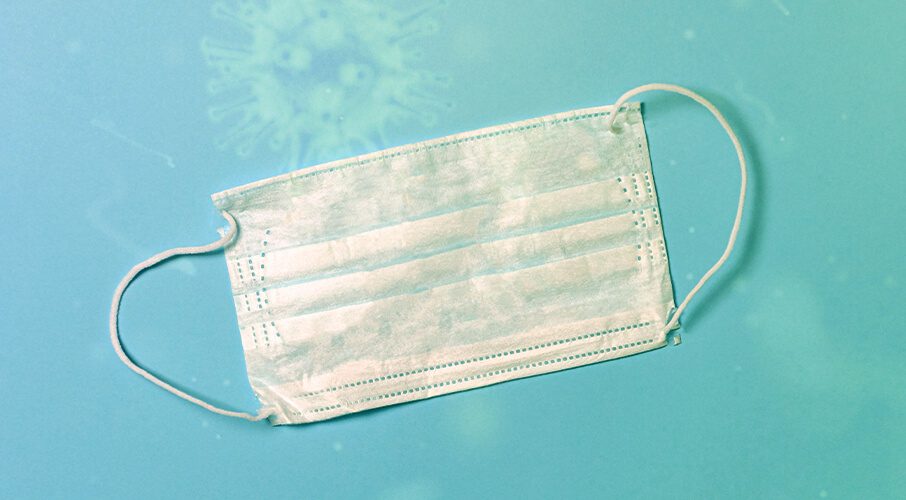With the coronavirus,  just remember to wash your hands, avoid touching your face, eat and sleep well, and get vigorous exercise. Irrational panic never helps, but rational preparation always makes sense, writes Shawn Whatley.
just remember to wash your hands, avoid touching your face, eat and sleep well, and get vigorous exercise. Irrational panic never helps, but rational preparation always makes sense, writes Shawn Whatley.
By Shawn Whatley, March 5, 2020
As COVID-19 sweeps the globe, many of us wrestle with whether to cancel our trips to Florida or cruises in the Caribbean. First-world problems to be sure. Having food, water, and sanitation puts those of us in the West in a much better position to fend off any pandemic, real or not.
If we knew for sure that COVID-19 killed as many people as MERS ( around 34 percent) or even SARS (around 10 percent), most of us would just stay home. But this novel coronavirus seems to kill only around as low as 1 to 2 percent of its victims, a death rate that has lead some to conclude that the illness is much like seasonal influenza. And most of the victims are old and sick. This still warrants some worry, but for most people, COVID-19 seems to be less of worry than it could have been.
But given that we still don’t know for sure, what, practically, should we do? Should we cancel our plans for March break, stockpile non-perishable food items, and buy as many N95 masks as we can find?
You could choose to buy a full-face respirator for close to $200. Online retailers offer many different options for less expensive masks when you buy in bulk. N95 masks filter 95 percent of particles, and the masks are not resistant to oil (N). Most sources suggest that they remain effective for 8 hours of continuous use.
But don’t waste your money. These masks work best with fit-testing. Just buying a box from Amazon doesn’t guarantee that the mask will work for the shape of your face, or those of everyone else living in your home. Furthermore, properly fitted masks only protect against material that you breathe in. You need other protection for your eyes. Sitting on a nine-hour flight to Europe under an N95 mask probably offers more of a false sense of security, at best. It is certainly better than nothing if you happen to be involved in resuscitating a sick person mid-flight, but for the average afebrile person sitting beside other average afebrile passengers, it doesn’t make a ton of sense.
Well, what about food? Should we hoard beans and bologna in case the supermarkets run out? Many Canadians, especially those living in rural communities, live with the chance of either getting snowed-in for a few days in the winter or losing power for a few days at any time of the year. As such, they always keep a small stock of non-perishable items in the cupboard. And they know how to make water last and the fridge stay cold for as long as possible if the power goes out.
These are good, practical skills regardless of the latest panic or pandemic. Having enough beans, rice, and pasta to last a week just seems like good common sense. You don’t need to start stockpiling because of COVID-19, but being prepared should be a normal feature of living in most of Canada.
Regardless of what you decide, masks and stockpiling food don’t represent expensive decisions. But what should you do about your plans for March break? Someone told me this week that they cancelled their cruise and lost over $1200. After the debacle with Diamond Princess—the coronavirus-stricken cruise ship quarantined in Japan—I would find it hard to tell people that there is no evidence whatsoever to worry about cruise ships. Having said that, does it make sense to cancel your $10,000 trip to Disneyland? Probably not. Unless you planned a vacation to someplace like northern Italy, where there is already a COVID-19 outbreak, you can probably keep your plans, with a few provisos.
Public health officers love to close things down, for good reason. Putting a cruise ship or hotel in quarantine is not that hard to do and doesn’t invite too much political backlash. In crises most people react with, “Don’t just stand there, do something!” However, doing something might protect the public health professionals more than the people in quarantine. Regardless of whether the decision to quarantine a whole cruise ship is the right course of action, you want to protect yourself from being one of the people put into quarantine.
So avoid containable crowds of vacationers, for example, cruise ships or all-inclusive resorts in higher-risk areas. A resort in Hawaii or Cancun probably carries next to no risk, but it still offers public health officers the chance to shut it down if the need arose. Vacationing away from crowds and outside of places that can be easily quarantined seems to offer a worry-free vacation opportunity.
Assuming you avoid places with outbreaks, such as those in Italy and Iran, healthy people should be fine on vacation. Just remember to wash your hands, avoid touching your face, eat and sleep well, and get vigorous exercise. Older people with chronic health concerns should probably delay their vacations until we learn more.
Buying expensive masks that don’t fit doesn’t make sense. Keeping a small stockpile of non-perishable food always makes sense, regardless of COVID-19. Irrational panic never helps, but rational preparation always makes sense.
Shawn Whatley is a physician, past president of the Ontario Medical Association, a blogger at ShawnWhatley.com, and a Munk Senior Fellow with the Macdonald-Laurier Institute. He is the author of “No More Lethal Waits,” a guide to reducing wait times and increasing efficiency in hospital emergency departments.




